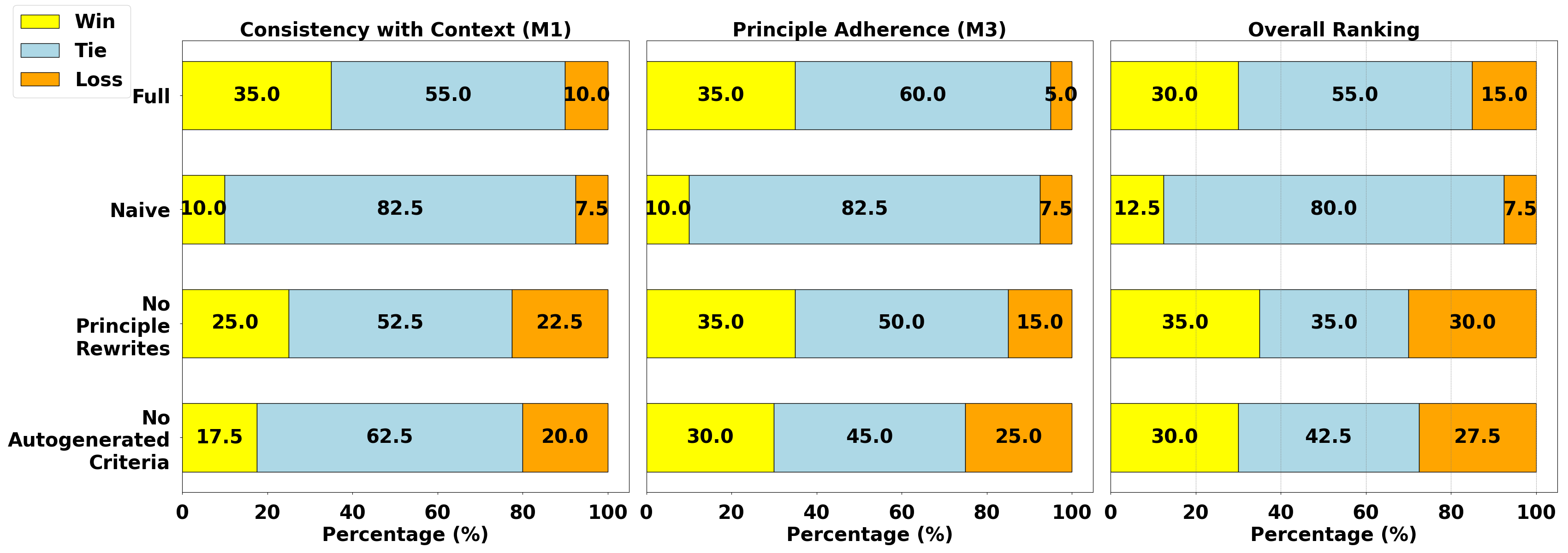Eliciting Expert-Defined Principles for LLM-Simulations
Roleplay-doh is a tool supporting human-LLM collaboration for domain-experts refining LLM-simulations. Applied to domain of mental-health, the tool enables expert counselor to create a customized AI patient intended for other novice counselors to use as a practice partner. While interacting with the AI patient, the expert counselor can provide qualitative feedback which is converted by an LLM into a principle, or a custom rule governing desired roleplay behavior. The AI patient references the updated expert-defined principles to generate its subsequent responses.








